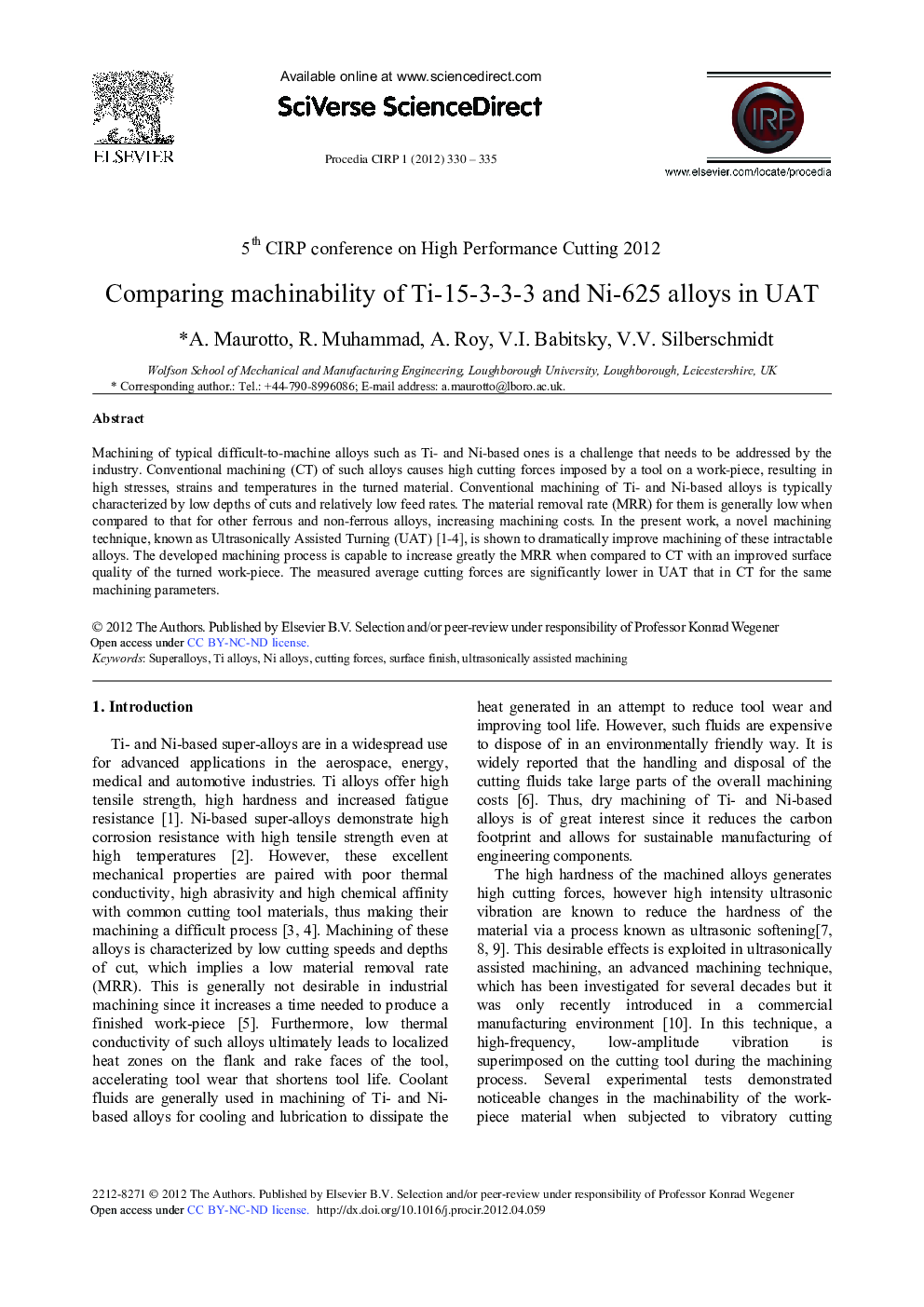| Article ID | Journal | Published Year | Pages | File Type |
|---|---|---|---|---|
| 1701520 | Procedia CIRP | 2012 | 6 Pages |
Machining of typical difficult-to-machine alloys such as Ti- and Ni-based ones is a challenge that needs to be addressed by the industry. Conventional machining (CT) of such alloys causes high cutting forces imposed by a tool on a work-piece, resulting in high stresses, strains and temperatures in the turned material. Conventional machining of Ti-and Ni-based alloys is typically characterized by low depths of cuts and relatively low feed rates. The material removal rate (MRR) for them is generally low when compared to that for other ferrous and non-ferrous alloys, increasing machining costs. In the present work, a novel machining technique, known as Ultrasonically Assisted Turning (UAT) [1–4], is shown to dramatically improve machining of these intractable alloys. The developed machining process is capable to increase greatly the MRR when compared to CT with an improved surface quality of the turned work-piece. The measured average cutting forces are significantly lower in UAT that in CT for the same machining parameters.
